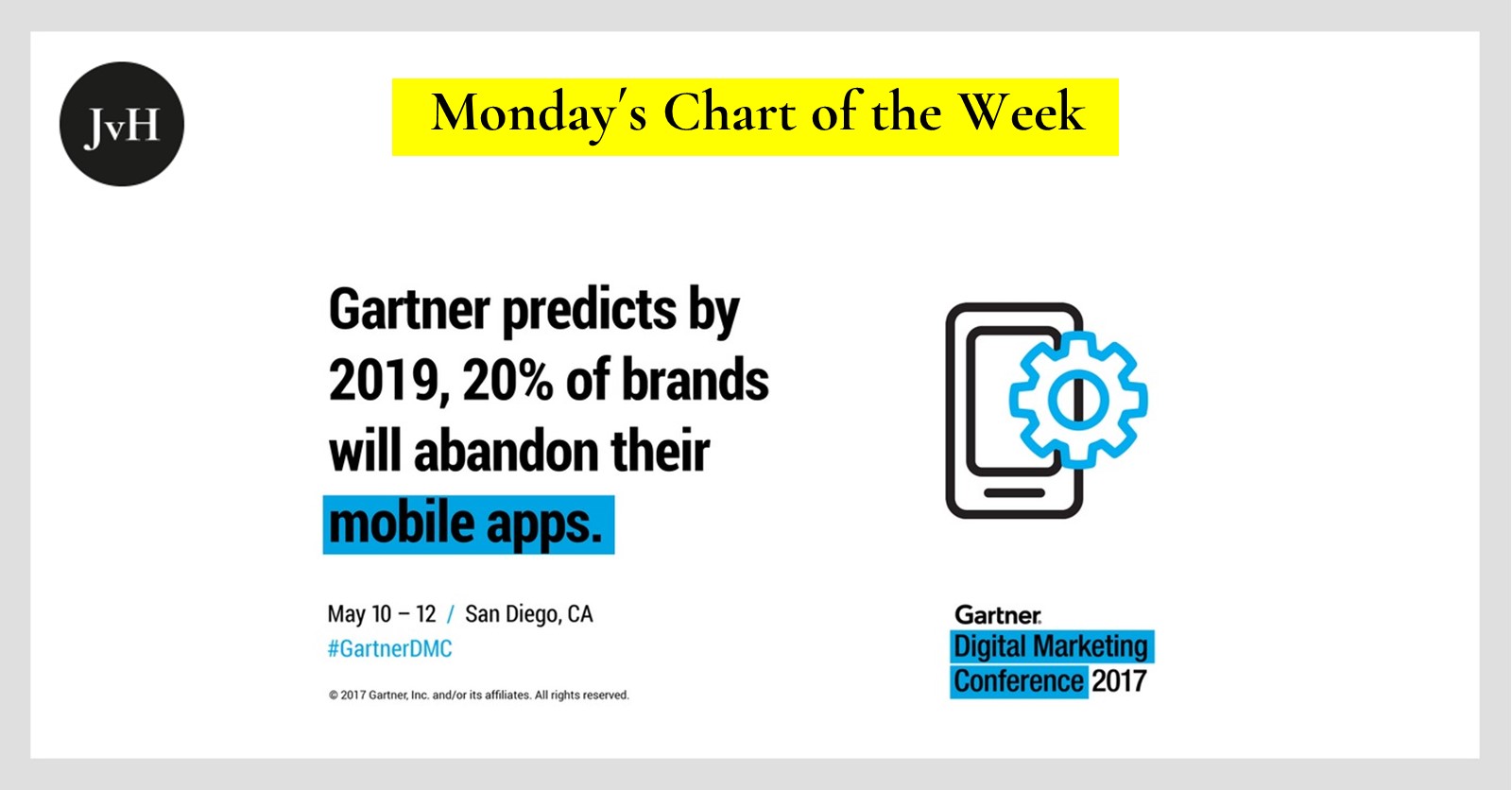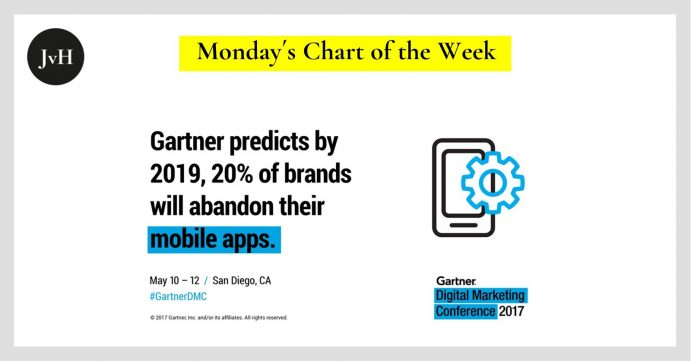
Gartner conference invitation with mobile app brand acceptance forecast for 2019
My most recent blog post dealt with fake problems (and corresponding fake solutions). Today I want to direct my “spotlight” (kindly notice a dose of self-irony here) at fake reasoning and fake explanations.
In today’s newsletter “Pioneers’ Breakfast” by the excellent German special interest magazine t3n the reader is invited to read an article on the allegedly inexorable surge of Progressive Web Apps (PWAs). t3n’s guest author of this article is Andres Dickehut, CEO of Consultix, a digital marketing and e-business consulting firm in Bremen, Germany.
The key message (and reasoning) of the article is presented in the first paragraph along the lines of the following chain of “arguments”:
(1) In 2020 50% of all mobile consumer apps will have been replaced by PWAs.
(2) This is a prediction given by Gartner analysts.
(3) It means that a large chunk of future app developments will result in PWAs.
(4) Such growth in market share could not be attained otherwise.
(5) Hence, within the next two years the whole IT industry and the consumer world will adapt to this new attitude.
I said this on many previous occasions already, but I find it truly stunning how readers are supposed to accept
a) that a mere forecast (be it by Gartner analysts or by any other big-name players) is a god-given fact which is then, again, supposed to be…
b) … accepted as a “reason” (post hoc – as if the trend manifested itself already to the fullest extent) why industry participants MUST behave in a certain way to avoid being cast aside.
What the author Dickehut is telling his readers here (without admitting or worse, realizing it) is that app developers and app consumers both MUST behave in a certain way because otherwise Gartner’s forecast would fall flat.
If a certain trend will happen anyway (and Dickehut gives us a number of good reasons why PWA may indeed, in the long run, replace native apps and responsive websites in e-marketing and e-commerce: app-fatigue, decrease of mobile app downloads, high memory consumption of mobile apps, responsive websites’ dependency on broadband infrastructure…) then there is no need for developers to back-up this trend, as demand for PWAs will increase anyway?
It is simply inconsistent to claim a trend would occur anyway and at the same time urgently recommend to developers to nourish it: It might perhaps be sensible for an industry’s player to overtake a trend in order to be perceived as a first or early mover. But it may also be wise not to be such a first mover. It is even more questionable whether it makes sense to be an early adopter of a trend perceived. Both, early movers and early adopters run a high risk of making lots of mistakes, waste cash, and be, in the end, not just first movers and adopters but also first losers.
Be this as it may, to state one “MUST” embark on a trend “BECAUSE” the trend is on its way is nonsensical. To state that a large chunk of future software developments SHOULD be executed in a certain fashion BECAUSE Gartner tells us this is going to be a major trend is an absurd demand.
Besides, Gartner’s hype cycles showed all too often that their forecasts “overtook” reality by decades thus predicting markets that did and will never exist. I would therefore be very cautious with Dickehut’s prediction that Alphabet, Amazon, Facebook, and Apple would allow for Progressive Web Apps to sideline or replace a major source of their earnings.

